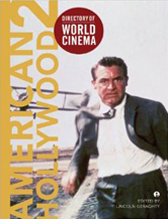
REVIEW: Choke
There’s a particular moment in David Fincher’s Fight Club (1999) where the disenfranchised male narrator voices an angry tirade against his female counterpart, insisting that “she ruined everything”. Choke, the second of author Chuck Palahniuk’s novels to be adapted for the screen, contains a near identical lament, however to dismiss either film (as some critics have) as works of misogynist fancy is to miss the point entirely.
Of course, any film in which the protagonist is a ‘restaurant-choke scamming’, sex-addicted tour-guide with a peculiar maternal attachment is likely to ruffle a few moral feathers.
Echoing the domesticated ennui of Fight Club’s central character, Choke’s Victor Mancini is a thirty-something med school drop-out, who, when not satiating his excessive libido, spends his time re-enacting Colonial America and scheming financially solvent diners into rescuing him from choking (before imparting upon them their ‘responsibility’ for his well-being).
If it weren’t for the film’s satirical, and I would argue entirely self-critical nous, Choke might sound like any number of ‘man-child’ narratives to have emerged from within American cinema over the past decade – from Billy Madison through to the more recent Step-Brothers.
 However, writer-director Clark Gregg (who also cameos in the film as one of Victor’s Colonial co-workers) isn’t interested in Victor simply as a source of regressive masculine amusement. Instead, his adaptation of Palahniuk’s novel can be read as an exploration of a peculiar male pathology emerging out of Victor’s childhood (parental) trauma which finds its expression in his obsessive and entirely disengaged sex-life.
However, writer-director Clark Gregg (who also cameos in the film as one of Victor’s Colonial co-workers) isn’t interested in Victor simply as a source of regressive masculine amusement. Instead, his adaptation of Palahniuk’s novel can be read as an exploration of a peculiar male pathology emerging out of Victor’s childhood (parental) trauma which finds its expression in his obsessive and entirely disengaged sex-life.
Far from sufficing as a source of titillation, the repetitive glimpses of Victor’s sexual conquests – imaged through brief flashbacks or fantasy cut-aways – are symptomatic of a melancholic desire to come to terms with his origins: the unknown identity of his father, and the seemingly hopeless attempt to rescue his mother from her worsening dementia.
It’s this aspect of Victor – his search for existential truth – that Gregg uses to propel the narrative, locating the character in a social scene in which everything seems like ‘a copy of a copy of something else’. From the historical theme park, to Victor’s faked seizures and his mother’s ever-distorting memories, Choke resembles a world in which the very notion of a stable truth (both personal and cultural) has become unknowable.
In this regard Choke can be read as a kind of contemporary satirical coming-of-age narrative, as Victor increasingly self-analyses his behaviour, attempts to deliver himself from his past irresponsibility and carve out some measure of a future.
For all its similarities with Fight Club, the comparably miniscule budget that brought Choke into existence is a testament to Gregg’s skill as an economic filmmaker, and a credit to the lead performers, from Kelly MacDonald as Paige (the un-consummated object of Victor’s affection), through Anjelica Huston as Ida (Victor’s hospital-bound mother), to Sam Rockwell, whose perfectly measured laconic turn as Victor allows for the effortless amalgamation of Choke’s absurdist and tender moments.





RSS feed for comments on this post. TrackBack URI